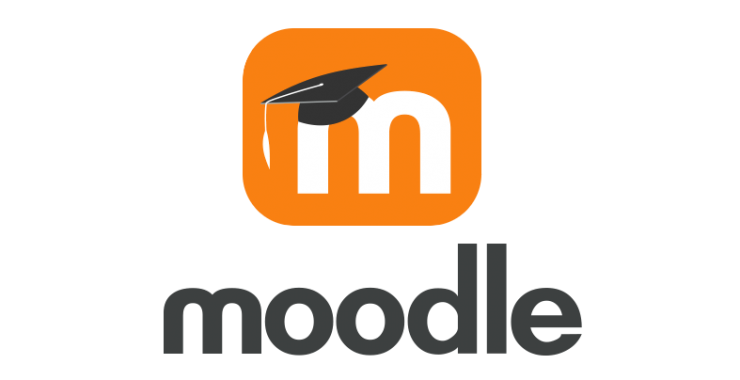Online education is becoming more and more popular, with good reason. The convenience of accessing learning materials online anytime, anywhere, has made it a preferred choice for many students. Owing to this, the LMS education is on the rise.
However, with so many different learning management systems (LMS) on the market, it can be difficult to know which one is right for you. In this blog post, we'll provide an overview of LMS education and help you decide which system is best for your needs. Keep reading to learn more!
What is an LMS?
An LMS is a learning management system. It's a software platform that allows you to create, deliver and track e-learning content in your organization.
Learning management systems are designed to help organizations store and manage all the information needed for employees to learn, including training materials, class schedules, certificates of completion and more.
These systems also help you track which employees need what information and which training has been completed. This makes it easy for managers to see which employees need additional training or if there are any gaps in their knowledge base.
Benefits of using LMS Education

Easy to use: The learning management system is easy to use and can be accessed from anywhere and anytime. You can access it from your desktop, laptop or mobile phone. You do not need any special software or hardware to run an LMS. All you need is a good internet connection and you can start using it right away!
Flexible: A learning management system gives you freedom in terms of how you want to deliver your training programs. You have complete flexibility when it comes to choosing what kind of content you want in your courses and who will be accessing them – whether they are internal or external participants!
Cost effective: Learning management systems are cost effective as they allow you to create online courses at minimum cost, which can then be accessed by multiple users across different locations making it convenient for everyone involved!
Improved learning outcomes: Learning management systems provide learners with self-paced training content and assessments that allow them to move through it at their own pace. This allows them to learn at their own pace, thereby improving their learning outcomes.
More efficient delivery of training: Learning management systems streamline and automate the delivery of training content and assessments, thereby making the process more efficient. This ensures that all employees receive the same training material and assessments, irrespective of where they are located or what time it is when they complete their assignments.
Better tracking and reporting capabilities: Learning management systems allow you to track learner progress as well as report on it by providing analytics that show how long learners spend on each page as well as which pages they visit most often. This helps businesses improve their training programs based on feedback from learners so that they can deliver more effective training materials that meet all learners’ needs.
Most Common Uses of an LMS
To ensure that your employees are gaining the knowledge and skills they need to perform their jobs effectively, you can use an LMS to:
E-Learning
An LMS helps you manage all aspects of your online learning content. It can store, organize and deliver your content in a variety of formats (text, audio, video).
Knowledge Management
An LMS is often used to manage knowledge within an organization. It allows you to capture expertise from all areas of the business and share it with others who need it.
LMS as a Library Management System (or DAM)
Some LMS platforms include digital asset management functionality that allows you to organize, manage and share all your educational materials from one place. This makes it possible for you to more easily create custom courses and share them with students or other people who need access to them.
LMS as an E-Commerce Platform
An LMS can also be used as an e-commerce platform where students can buy products such as books or other material directly from the LMS itself without having to leave the site at all!
Provide online training and certification.
An LMS can help you keep track of which employees have completed courses, track their progress and monitor their performance.
Manage employee onboarding.
You can use the system to provide new hires with the training they need to learn about specific systems or processes that may be unfamiliar or complex.
Provide ongoing training and development.
An LMS lets you create online courses that cover multiple topics, so that employees can keep up with changes in your organization's practices over time. This also helps you make sure that employees receive relevant information as needed — for example, if new regulations or technology come into play.
LMS for schools
Learning Management Systems (LMS) help educational institutions organize and manage their course content. They can be used to provide students with access to course materials and facilitate the creation of dynamic online classes.
An LMS can also be used for e-learning, which is an emerging trend in higher education and corporate training that uses web-based technologies to deliver instruction.
Some LMSs offer a wide range of features, such as:
Course management: A number of modules that allow faculty members to create interactive online courses with multimedia content and discussion boards.
Student enrollment:
Enrollment tools in an LMS are designed to help students find the right classes for them, whether they're new or returning students. They can help you identify which courses have available seats or give you an overview of how many students are seeking admission in each class. You can also use enrollment tools to determine how many seats are left in a particular program or major that a student wishes to pursue.
Enrollment tools also enable instructors to track student progress, including attendance and grades. Some systems also provide automatic grading capabilities so instructors don't have to manually enter grades into a database or spreadsheet each semester.
Automated Scoring tools
Scoring tools in LMS provide automated scoring capabilities so instructors don't have to manually enter scores into a database or spreadsheet each semester. These tools also allow instructors to track student progress throughout their program. They can see how often students log into the system and what they've completed so far.
This allows them to see if students are struggling with certain concepts or if they need additional help from a professional tutor or professor. It also helps instructors gauge which areas students find difficult so they can focus on those areas when preparing for exams or exams that require essay responses.
Why should you start using an LMS?
Due to the Covid-19 pandemic, many schools and businesses have had to shift to online learning and working. While this transition has been challenging, it has also highlighted the need for a reliable Learning Management System (LMS).
An LMS is a software platform that can be used to create, deliver, and track online courses and training programs. It can also be used to store and share educational resources, such as assignments, quizzes, and videos.
In addition, an LMS can be used to monitor learner progress and assess student understanding. For these reasons, an LMS can be an invaluable tool for both educators and learners. If you are not already using an LMS, now is the time to start.
4 Features to look for in an LMS
The best LMSes have the following characteristics:
Easy-to-use interface. The user experience should be simple and straightforward for both instructors and students.
Easily customizable features. A good LMS allows you to change the look and feel of your courses, as well as integrate them with other systems such as payment platforms.
Flexible pricing options. Some LMS providers offer free plans in addition to paid ones; others may charge extra for certain features or add-ons (like job posting services).
Powerful analytics tools. These help you track how students interact with your content so you can improve future course iterations accordingly.
Top 3 Free LMS Platforms
Oreed

Oreed is the easiest to use, most secure and scalable LMS on the market. It is a dominant choice for customers of all sizes and across verticals, including educational institutes, training organizations and businesses that need an enterprise-grade solution.
Oreed can handle thousands of users at once in a single site. It's also user friendly with a large variety of customization options available.
It allows you to deliver interactive training content and build databases of learners. The mobile solution synchronizes all available data so that your team have immediate access to the latest information.
You can customise your learning experience - whether you're capturing content in-house or using packaged templates.
With its ability to meet your business needs and the ability to create interactive learning content, you can’t go wrong with Oreed.
Moodle

Moodle is a popular and widely used learning management system. It is an open source software package, which means that it is free for anyone to use.
The software can be downloaded and installed on any server, which could be your school's computer or an external hosting provider's server. You can also get the Moodle software as a hosted solution from an LMS provider like Moodlerooms.
It is available in several languages including English and French. The interface has been translated into more than 30 languages including Spanish, German and Chinese.
Edmodo

Edmodo is a free, safe, and fun way for students to connect with each other and get help from their teachers. From classrooms around the world, Edmodo students can collaborate in group work, share assignments, post pictures and videos, ask questions, and have discussions on just about any subject.
Teachers can use Edmodo to create classes and groups that are open or closed to specific groups of students. They can also send emails to their entire class or individual students. All communication on Edmodo is private between teachers and students.
Conclusion
So there you have it - everything you need to know about LMS education. Whether you are a student or educator, the benefits of using an LMS should be clear. If you are still undecided, consider giving one a try and see for yourself how much easier and more enjoyable learning can be.
If you are looking for an LMS that can help with your education needs, look no further than Oreed. We provide a variety of features and tools to make learning easier and more convenient for you.
Sign up today to try out our platform and see how it can benefit your educational pursuits. With Oreed, you’ll have everything you need to succeed in your studies!






